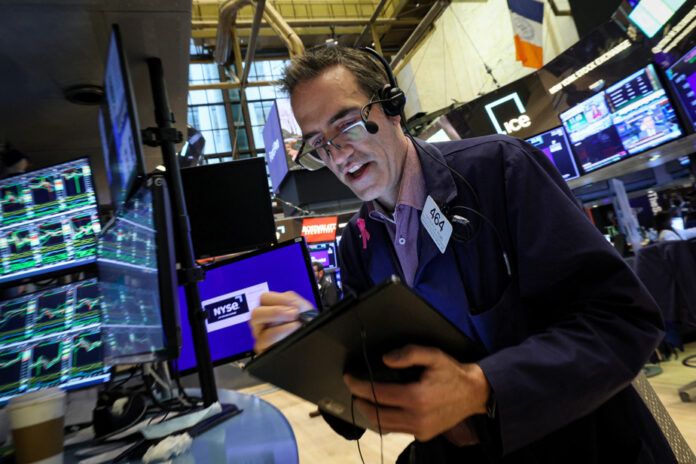(New York) The New York Stock Exchange ended lower on Tuesday, as the market was reassured by the stabilization of the banking system, but lacked conviction and indicators capable of guiding the trend.
The Dow Jones fell 0.12%, the NASDAQ index 0.45% and the broader S index
The strength of the energy sector helped the Toronto Stock Exchange’s flagship index to close higher.
The composite index S
The session had started in disorganized order, but the indices quickly all went into the red.
“There seems to be no momentum to buy or sell outright,” commented Steve Sosnick of Interactive Brokers.
“It’s a good thing there isn’t more news” after two very turbulent weeks on the banking front, “but in the absence of any development” or macro indicator of significance, “there there aren’t a lot of important elements to rely on, “continues the analyst.
In this context, explains Steve Sosnick, the market can be guided by technical data, but the indices are currently located halfway between two major thresholds (the average of the last 50 trading days and that of the last 200 sessions), without find support on one or the other.
In the end, Wall Street was therefore forced to operate within tight margins.
These low spreads are also due to the caution of investors, still marked by the financial earthquake of recent weeks.
“The problem with a financial crisis is that no one is going to tell you it’s over,” said Steve Sosnick. Wall Street struggles to find direction “because there are still a lot of unknowns.”
Even the American regional banks, superstars of the rating since the beginning of March, had a relatively calm day, like First Citizens (2.29%), in the spotlight on Monday after the announcement of its takeover of Silicon Valley Bank (SVB), or the Californian First Republic (-2.32%), often seen as a possible weak link.
Sought after in recent weeks, technology stocks have again been the subject, as on Monday, of profit taking, mainly Alphabet (-1.65%) and Meta (-1.06%).
Under very strong pressure from the banking crisis, bond rates continued to rise. The yield on 10-year US government bonds was 3.56%, down from 3.52% on Monday’s close.
On the stock market, the clothing group PVH soared (20.02%) after publishing a net profit significantly above expectations for the last quarter of 2022, thanks in particular to the good performance of the Calvin Klein brand.
The specialist in installment payment on the internet Affirm (-7.34%) had a hard time with the arrival on this market of the giant Apple, which launched its Apple Pay Later service on Tuesday.
Pharmacy giant Walgreens rose (2.67%) on higher-than-expected quarterly revenue, although its net profit came in below expectations due to higher costs.
The vehicle reservation platform with driver (VTC) Lyft fell (-7.60%) after the announcement of the arrival of a new general manager, David Risher, formerly of Amazon and Microsoft. He will succeed co-founder Logan Green, who will become chairman of the board.
After having clearly benefited from the setbacks of TikTok, threatened with a ban in the United States, Snap (-5.79%), parent company of the social network Snapchat, and Pinterest (-4.38%) suffered profit taking.
Investors have welcomed the prospect of a spin-off from New York-listed Chinese e-commerce giant Alibaba (14.26%), which will split into six separate entities, five of which could be listed separately.















